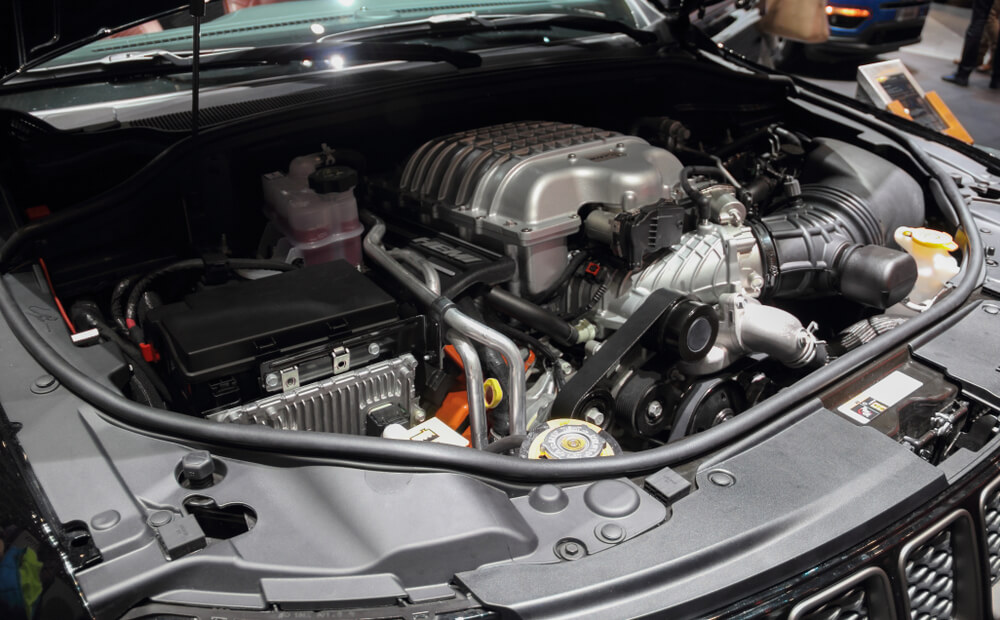
Consumers love Jeep Cherokee, as it’s an easy-to-drive vehicle. It is sturdy with a small, unibody design. It’s also fitted with a powerful engine, making it quick and reliable in different terrains.
Even so, the Jeep Cherokee 2.4 Tigershark has proved problematic. Many Jeep owners have noted that the engine consumes a quart of oil every 1000 miles. As a result, they have become unreliable and expensive to maintain.
Typically, the engine system should warn you when oil levels go below 3.5 liters. However, this is not always the case. The engine can stall due to low oil levels, a hazard to drivers. While a few owners have successfully resolved the issue, most continuously grapple with oil consumption defects.
Luckily, California lemon laws are designed to protect consumers with troublesome vehicles like the Jeep Cherokee 2.4 Tigershark. A California lemon law attorney can help you pursue a refund, replacement, and other financial compensation.
The Jeep Cherokee may have design defects that lead to abnormal oil burn-off. A properly functioning engine has control rings at the piston’s top part preventing oil from entering the combustion chamber.
On the contrary, a Tigershark engine has defects that prevent pistons from working well with cylinders. As a result, the engine oil enters and burns in the compression cycle, and most Jeep Cherokee 2.4 Tigershark models experience the following:
For instance, a consumer who bought a 2018 Jeep Cherokee 2.4L noted excessive oil consumption. At only 4,000 miles, the oil levels were too low to be read by the dipstick— highly unusual.
The consumer assumed it was a genuine mistake by the manufacturer while assembling it. However, the problem occurred once again after a few thousand miles. The consumer raised the complaint to the dealers, who acknowledged the problem.
Surprisingly, the dealer advised the consumer that the problem would be over after 20,000 miles— a promise that didn’t materialize.
After numerous complaints and unresolved excessive engine consumption problems, Jeep issued a Customer Satisfaction Notification (W20, W80, and W84) in 2021. According to the notification, the affected Jeep models consumed excessive oil under certain conditions— e.g. continuous stop-and-go driving.
Some of the remedies that Jeep has recommended include a software update, an oil consumption test, or an engine change. Vehicle owners under W20/W84 categories can resolve oil consumption issues using a software upgrade.
On the other hand, vehicles classified as W80 require an oil consumption test and sometimes an engine change.
The affected vehicle models are equipped with 2.4L Tigershark engines that consume more than standard oil due to specific operating conditions.
In August 2020, aggrieved vehicle owners filed a class suit in a Michigan court against Fiat Chrysler Automobiles. According to the Chrysler oil consumption lawsuit, affected vehicles like Dodge, Chrysler, Fiat, and Jeep frequently stall because they have defective pistons.
Here’s a breakdown of the other key allegations in the lawsuit:
According to the lawsuit, Fiat Chrysler Automobiles avoided the cost of recalling the vehicles. As a result, vehicle owners continuously incur high maintenance costs to keep the vehicles operational.
As the Jeep owner was driving, the vehicle lost motive power triggering a jack-and-forth movement before it stalled. The Jeep owner also highlighted that the car consumed high amounts of oil.
The engine light would illuminate shortly after an oil change. The vehicle owner took the vehicle to the dealer, who diagnosed the problem as a multi-air actuator. Unfortunately, the dealer didn’t repair the defect nor report it to the manufacturer.
Incident Date: November 18, 2020
The vehicle owner of the 2016 Jeep Renegade registered a complaint that it consumes oil at an abnormal rate. In addition, it runs violently in rough zones but has no problem in drive or neutral.
After notifying the dealership, they updated the TCU and ECU, which didn’t solve the issue. In addition, the vehicle is no longer covered by warranty.
NHTSA ID Number: 10984890
The 2.4L Dodge Dart stalls and dies at highway speeds. The affected consumer has also noted that the vehicle uses excessive oil with no leaks. Several attempts by mechanics to fix the issue have been unsuccessful.
According to California lemon laws, a manufacturer or a dealer who can’t repair or fix a warranty defect after a “reasonable number of attempts” must either:
What qualifies as a reasonable amount of repair attempts will depend on the situation, and our attorneys can review whether your situation qualifies.
It can be frustrating to drive a vehicle that stalls without a notification. Moreover, frequent oil changes or visits to a mechanic can drain your finances. It’s recommended to work with a reputable lemon law attorney to pursue a refund or replacement.
At LemonLaw123, we’re proud of our success rate and can take on any case to seek compensation for our clients.
Contact us online or call us at 657-276-6633 for a free case review.
Valerie G. Fernandez Campbell, known as The Lemon Law Lady, has dedicated her entire legal career to the specialized field of Lemon Law, a journey that began immediately after her
graduation from UCLA School of Law.
With a 99% success rate and a policy of no fees unless you win, her practice stands as a testament to her expertise in California’s Lemon Law, her commitment to her clients, and her unwavering dedication to justice and consumer rights.